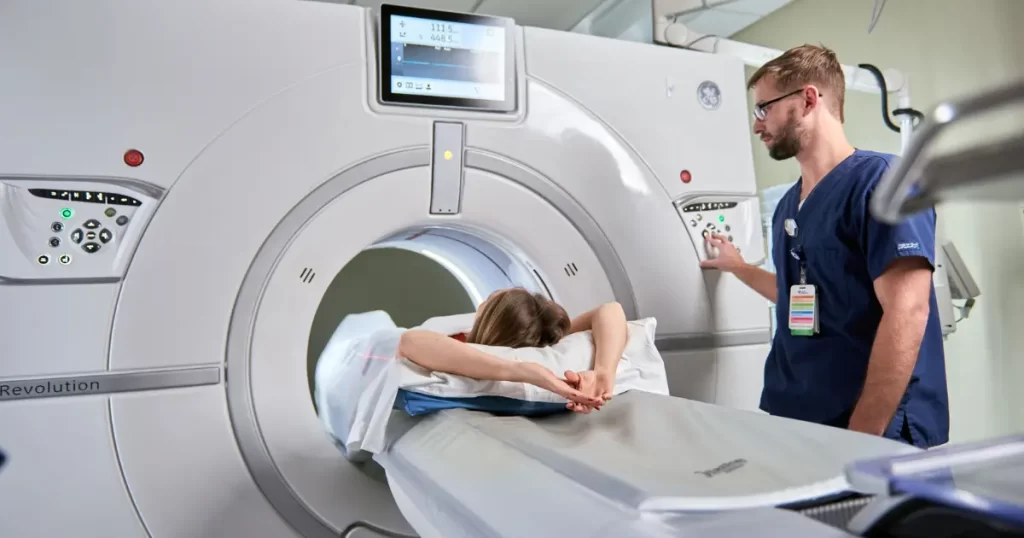The Role of Technology in Modern Healthcare
Technology has revolutionized every aspect of our lives, and healthcare is no exception. From improving patient care to enhancing diagnostic accuracy, technology plays a pivotal role in modern healthcare. In this article, we’ll explore how various technological advancements are transforming the healthcare industry, making it more efficient, accessible, and effective.

- 1. The Evolution of Healthcare Technology
- 2. Electronic Health Records (EHRs) and Their Impact
- 3. Telemedicine: Bridging the Gap
- 4. Artificial Intelligence in Diagnostics
- 5. Wearable Health Devices and Remote Monitoring
- 6. Robotics in Surgery
- 7. Big Data and Predictive Analytics
- 8. Challenges and Ethical Considerations
- 9. The Future of Technology in Healthcare
- Conclusion
- FAQs
1. The Evolution of Healthcare Technology
The integration of technology in healthcare has evolved significantly over the past few decades. From basic electronic health records to advanced AI-driven diagnostics, the healthcare sector has embraced technological innovations to improve patient outcomes and operational efficiency.
Key Milestones in Healthcare Technology
- 1980s: Introduction of electronic health records.
- 2000s: Emergence of telemedicine.
- 2010s: Adoption of wearable health devices and AI in diagnostics.
- 2020s: Rapid advancements in robotics and personalized medicine.
2. Electronic Health Records (EHRs) and Their Impact
Electronic Health Records (EHRs) have transformed how patient information is stored, accessed, and shared. EHRs have replaced paper records, making it easier for healthcare providers to track patient history, medications, and treatment plans.
Benefits of EHRs
- Improved Patient Care: EHRs enable healthcare providers to access complete and accurate patient information, leading to better decision-making.
- Enhanced Coordination: EHRs allow different healthcare providers to share patient information, improving care coordination.
- Increased Efficiency: EHRs reduce paperwork and administrative tasks, allowing healthcare professionals to focus more on patient care.

3. Telemedicine: Bridging the Gap
Telemedicine has emerged as a vital tool in making healthcare more accessible, especially in remote areas. Through telemedicine, patients can consult with healthcare providers from the comfort of their homes, reducing the need for in-person visits.
Advantages of Telemedicine
- Convenience: Patients can receive medical advice without traveling to a healthcare facility.
- Accessibility: Telemedicine expands access to healthcare services in rural and underserved areas.
- Cost-Effective: Telemedicine reduces healthcare costs by minimizing hospital visits and associated expenses.
4. Artificial Intelligence in Diagnostics
Artificial Intelligence (AI) is revolutionizing diagnostics by enabling faster and more accurate detection of diseases. AI algorithms can analyze medical images, lab results, and patient data to identify potential health issues early on.
AI Applications in Healthcare
- Medical Imaging: AI-powered tools can detect abnormalities in X-rays, MRIs, and CT scans with high precision.
- Predictive Analytics: AI can predict patient outcomes based on historical data, helping healthcare providers make informed decisions.
- Personalized Treatment: AI can recommend personalized treatment plans based on a patient’s genetic makeup and medical history.
5. Wearable Health Devices and Remote Monitoring
Wearable health devices have empowered individuals to take control of their health by monitoring vital signs and activity levels in real-time. These devices, coupled with remote monitoring technologies, allow healthcare providers to track patients’ health conditions outside of clinical settings.
Popular Wearable Health Devices
- Fitness Trackers: Monitor physical activity, heart rate, and sleep patterns.
- Smartwatches: Track various health metrics, including ECG, blood oxygen levels, and stress.
- Remote Monitoring Devices: Enable healthcare providers to monitor chronic conditions, such as diabetes and hypertension, remotely.

6. Robotics in Surgery
Robotics has made its way into operating rooms, enhancing surgical precision and reducing recovery times. Robotic surgery allows for minimally invasive procedures, resulting in less pain and quicker recovery for patients.
Key Benefits of Robotic Surgery
- Precision: Robots assist surgeons in performing complex procedures with greater accuracy.
- Minimally Invasive: Robotic surgery involves smaller incisions, leading to reduced scarring and faster healing.
- Reduced Risk: The precision of robotic surgery minimizes the risk of complications during surgery.
7. Big Data and Predictive Analytics
Big Data is transforming healthcare by providing insights that drive decision-making and improve patient outcomes. Predictive analytics uses Big Data to forecast health trends, identify at-risk populations, and optimize treatment plans.
Applications of Big Data in Healthcare
- Population Health Management: Big Data helps identify health trends within populations, enabling targeted interventions.
- Personalized Medicine: Predictive analytics tailors treatment plans to individual patients based on their genetic and lifestyle data.
- Operational Efficiency: Big Data optimizes hospital operations, from resource allocation to patient flow management.
8. Challenges and Ethical Considerations
While technology offers immense benefits, it also presents challenges and ethical considerations. Issues such as data privacy, the digital divide, and the potential for AI bias must be addressed to ensure equitable healthcare.
Key Ethical Concerns
- Data Privacy: Ensuring patient data is secure and protected from breaches.
- AI Bias: Addressing potential biases in AI algorithms that could affect healthcare outcomes.
- Accessibility: Bridging the digital divide to ensure all populations have access to healthcare technology.
9. The Future of Technology in Healthcare
The future of healthcare technology looks promising, with advancements in areas such as genomics, virtual reality, and blockchain. These innovations have the potential to further personalize care, improve outcomes, and make healthcare more accessible and efficient.
Emerging Trends
- Genomic Medicine: Personalized treatments based on an individual’s genetic profile.
- Virtual Reality in Therapy: VR is being used for pain management and mental health treatment.
- Blockchain for Data Security: Blockchain technology offers a secure way to store and share patient data.
Conclusion
Technology is at the heart of modern healthcare, driving innovations that improve patient care, enhance diagnostics, and make healthcare more accessible. As technology continues to evolve, it will undoubtedly play an even more significant role in shaping the future of healthcare.
FAQs
1. How has telemedicine changed patient care?
Telemedicine has made healthcare more accessible by allowing patients to consult with doctors remotely, reducing the need for in-person visits.
2. What are the benefits of robotic surgery?
Robotic surgery offers greater precision, smaller incisions, and faster recovery times compared to traditional surgery.
3. How does AI improve diagnostics?
AI analyzes medical data to detect diseases earlier and more accurately, leading to better patient outcomes.
4. What are the ethical concerns with healthcare technology?
Ethical concerns include data privacy, AI bias, and ensuring equal access to healthcare technology for all populations.
5. What is the future of technology in healthcare?
The future includes advancements in genomic medicine, virtual reality for treatment, and blockchain for secure data management.
